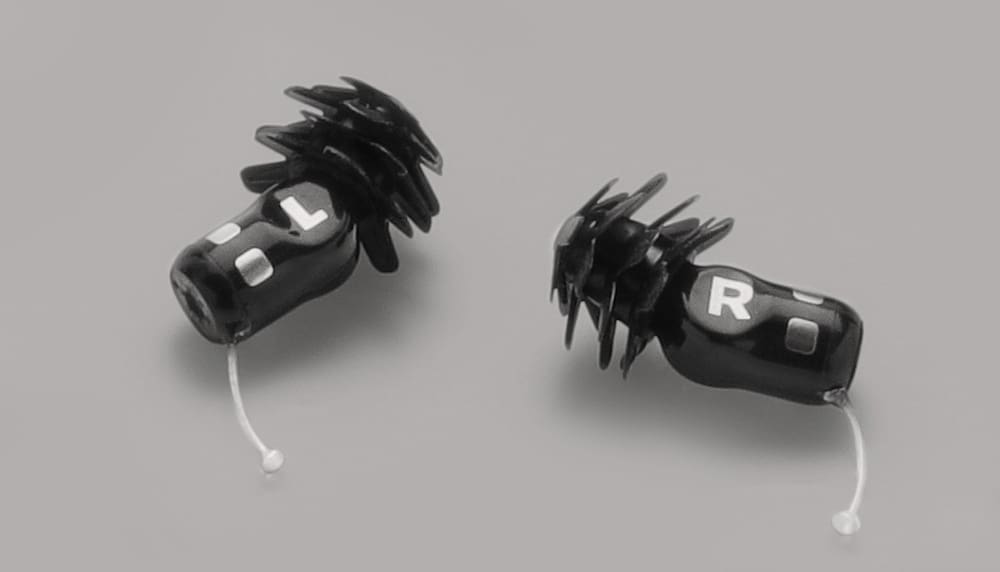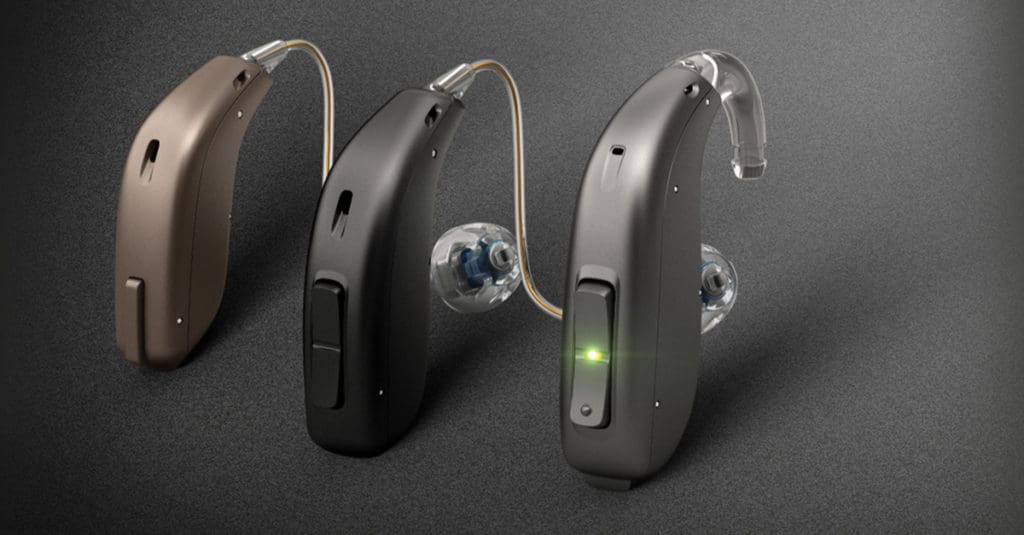Does Insurance Cover Hearing Aids? A Guide to Hearing Aid Coverage
Recommendations from TheSeniorList
Check out our team's favorites.
On average, prescription hearing aids will cost over $2,000 for a pair, and OTC hearing aids are only slightly more affordable. Unfortunately, few insurance providers will cover the full cost of hearing aids. That said, some carriers will offer partial coverage for hearing aids or hearing screenings. In this article, I’ll go over what type of insurance covers hearing aids and some other ways to help pay for these valuable devices.
Pro Tip: If you or a loved one suffers from hearing loss, we’ve compiled a helpful guide to hearing aids that covers everything from how they work to how to get them.
Why Do Most Private Insurers Not Cover Hearing Aids?
Hearing aids can be costly, but most insurance plans like Original Medicare and other private insurance companies don’t typically cover the full cost of hearing aid devices or exams. Some insurers may provide discount programs on specific brands or hearing evaluations, but there are very few that will cover the total costs.
For instance, while Medicare will cover the cost of a medically necessary hearing exam (like to check for an ear infection), Original Medicare doesn’t cover hearing aids or fitting exams for hearing aids. Coverage is also largely dependent on the state that you live in. For instance, Medicaid can pick up the cost of hearing aids, but this varies by location. Approximately 20 U.S. states, including Colorado, Oregon, and Texas, mandate that insurance plans cover the cost of hearing aids for children but not adults.
Pro Tip: It’s important to thoroughly clean and maintain your hearing aids. Read our guide on how to clean hearing aids.
What Types of Insurance Cover Hearing Aids?
If you’re enrolled in Medicare Advantage Plans (Part C), you may receive some coverage for hearing aids. These plans might offer benefits that Original Medicare might not cover.
Additionally, if you qualify for VA health benefits, all exams and hearing aids are usually covered.
Insurers like Medicaid cover hearing aids for adults with disabilities, and a few private health insurance companies might pay for hearing aid exams or pick up part of the cost of hearing devices.
Also, some federal employees and family members might qualify for hearing aid coverage through Federal Employees Health Benefits. These benefits might offer up to $2,500 worth of allowance towards hearing aids through a qualifying health insurance plan. Several local civic organizations such as The Lions Club provide refurbished hearing aids or financial assistance.
For a list of resources, visit Hearing Loss Association of America or the Hearing Aid Project, which provides a list of national and local resources for hearing aid assistance.
Pro Tip: Do you or a loved one have tinnitus? We’ve compiled a list of hearing aids for tinnitus that can help mitigate ringing and whirring in the ears.
State Insurance Mandates for Hearing Aids
Currently, 20 states require that insurance companies provide insurance coverage for hearing aids for children. The cost of coverage varies between $1,000-$1,400 per hearing aid, depending on the state. Each state has its own specific mandate, so be sure to check if there’s a state law that requires insurance providers to provide coverage for hearing aids for adults.
The states that currently require insurance coverage for both children and adults include Arkansas, Connecticut, Illinois, New Hampshire, and Rhode Island. For example, the state of Arkansas mandates a health benefit plan for both children and adults that offers coverage for a hearing aid or hearing instrument. The coverage would be for a device that is less than $1,400 for each three-year period. Additionally, it would not be subject to deductibles or copayments.
Other states like Texas, for example, may mandate that insurance providers cover the cost of cochlear implants or hearing aids for children under 18.

How to Find Out if Your Insurance Covers Hearing Aids
Hearing aids can be costly, but not all insurance providers cover the cost of hearing aids or exams. To find out if your insurance covers hearing aids, check with your insurance provider; or you can check if your state is mandated to provide hearing aid coverage for adults and children. You can contact your health-care provider and get in touch with member services for more information about insurance coverage for hearing aids.
You may have a few additional questions about whether your insurance coverage covers partial costs, exams, or hearing aids. As part of your research, be sure to find out if there are providers in your area or if your health plan offers a separate benefit or allowance for hearing aids.
It’s also a good idea to look into the requirements for age-related hearing loss or other criteria to qualify for certain types of coverage. Some benefit periods may also vary. You should also check the hearing aid’s duration and whether regular checkups are covered. Finally, check with your insurance provider to see what their benefit amounts allocate, since there are specific benefit caps or maximum amounts that the provider may cover.

Other Ways to Pay for Hearing Aids
Several federally funded programs or financial assistance programs can help pay for partial or full coverage for hearing aids and exams. Some of the biggest financial assistance programs include Medicaid, Medigap, VA, or other local and national assistance programs.
Original Medicare and Hearing Aid Coverage
Unfortunately, Original Medicare doesn’t cover hearing aids or hearing aid exams. This means that you’d have to pay out-of-pocket costs unless you have another insurance provider that may cover the full or partial cost of hearing aids. Additionally, keep in mind that some Medicare Advantage Plans (Part C) may provide extra benefits, so contact Medicare for more information.
Medicaid and Hearing Aid Coverage
Currently, Medicaid offers certain vision and hearing screening services for children, but it’s also largely dependent on a state-by-state basis. For adults, Medicaid coverage largely varies on a state basis. For example, certain benefits may cover hearing tests, hearing aids, maintenance for hearing aids, and battery replacements, depending on eligibility.
For more information about benefits, visit Medicaid.gov.
Medigap and Hearing Aid Coverage
Medigap is known as supplemental insurance that seeks to cover gaps in coverage for Medicare Parts A and B. Unfortunately, Medigap doesn’t cover hearing aids. With that said, the best Medigap providers may offer discounts on particular devices or hearing exams.
VA and Hearing Aid Coverage
The VA provides coverage for hearing aids depending on eligibility. To receive hearing aids, individuals are asked to first register with the health administration or enrollment section at a local VA Medical Center or online. After that process is completed, individuals can schedule an appointment to receive a hearing evaluation. From there, an audiologist will determine whether you need hearing aids or other devices. According to the VA, hearing aids, repairs, as well as batteries, will be at no cost to individuals who maintain VA eligibility.
Charitable and Assistance Programs for Hearing Aid Coverage
Fortunately, there are quite a few organizations, nonprofits, or other financial assistance and charitable groups that will provide free, discounted, or low-cost hearing aids depending on eligibility and specific criteria.
The Better Hearing Institute has compiled a helpful list of organizations that offer financial assistance and coverage for hearing aids. Organizations include the Air Force Aid Society, Communications for the Deaf and Hard of Hearing, and more. Organizations listed in the guide are geared toward low-income individuals and also provide state eligibility requirements.
Bottom Line
While hearing aids and repairs can be expensive, there are many resources and financial assistance programs that can help offset the cost. If you’re looking for comparisons of the best hearing aids on the market, read our picks for this year’s best hearing aids.
Insurance and Hearing Aids Frequently Asked Questions
-
What insurance covers hearing aids?
For adults, hearing aids are rarely covered by medical insurance, though some providers will offer additional hearing insurance that works similar to coverage for vision or dental.
-
Does Medicare cover hearing aids for seniors?
Original Medicare does not cover the cost of hearing aids or hearing exams. With that said, some Medicare Advantage plans will cover these costs.
-
What is a reasonable price for hearing aids?
In my experience, the average cost of hearing aids is about $1,000-$4,000. The pricier options will have more advanced features like Bluetooth capabilities, smartphone apps, and remote support from audiologists.
-
What to do if you can't afford hearing aids?
If you can’t afford hearing aids, then you should look into the Better Hearing Institute’s list of organizations that offer assistance for those who need hearing aids but cannot foot the bill.
-
Are hearing aids tax deductible?
By using a Schedule A Form 1040, you can deduct the itemized costs of hearing aids, hearing tests, audiologist visits, hearing insurance premiums, hearing aid batteries, and transportation costs to hearing health appointments.





